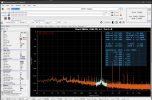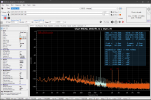Not very scientific. "most of", "can be", "low order or at higher amplitude" ??? so one OR the other?Most of the variability found in DACs and amplifiers wouldn't correlate with findings in blind listening tests. Research even shows lower order distortion can be a good thing for some ('Recent studies have clearly shown the human PREFERENCE for THD distortion of low order or at higher amplitudes. These are viewed subjectively as enriching the sound', Earl L. Geddes & Lidia W. Lee, 2008).
Very click bait.
How much distortion? What harmonics? What SPL? What type of music? Whos preference?
The thicker the music the more distortion turns it to mud. So some is great on a solo vocal, not so good on full orchestra or heavey metal.


